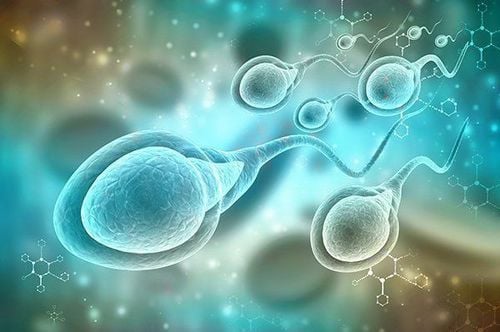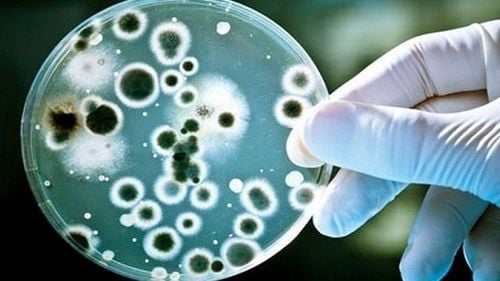Chicken eggs are a familiar food, commonly used in everyone's diet. With chicken eggs as ingredients, we can prepare various delicious dishes. In particular, cooked chicken eggs provide a good amount of nutrition that is beneficial for health. So, does eating raw chicken eggs have any effect on health?
1. Nutrition in raw chicken eggs
Chicken eggs are a very familiar food in every household and are widely used in daily family meals. Chicken eggs are a food source rich in nutrients. In addition, eggs bring us numerous health benefits. Some studies have proven that eating eggs daily not only supplies essential nutrients to the body but also helps combat many diseases such as reducing cancer risk and boosting the immune system. Chicken eggs are among the healthiest foods humans can consume daily. Homemakers can prepare eggs in various nutritious dishes, like sunny-side-up eggs for a quick and convenient breakfast.
Chicken eggs contain essential nutrients for the body, such as fat, protein, vitamins, and minerals.
On average, one raw egg (about 50g) contains the following nutrients:
- Calories: 72
- Protein: 6g
- Fat: 5g
- Folate: 6% RDI
- Vitamin A: 9% RDI
- Phosphorus: 10% RDI
- Selenium: 22% RDI
- Vitamin B5: 8% RDI
- Vitamin B2: 13% RDI
- Vitamin B12: 7% RDI

The RDI (Reference Daily Intake) is defined as the daily consumption level of a nutrient.
Moreover, experts have found that one raw egg also contains 147 mg of choline. Choline is an essential nutrient that promotes a healthy brain and heart. Thus, including eggs in daily meals can enhance brain and cardiovascular health. Additionally, raw eggs also contain lutein and zeaxanthin, which help protect our eyes and reduce the risk of age-related diseases. Most of the nutrients are concentrated in the yolk, while the egg white mainly contains protein. That is why some bodybuilders or individuals on a diet prefer using egg whites in their meals.
2. What are the effects of eating raw eggs?
Chicken eggs provide the body with a significant amount of vitamins and nutrients while being a common, affordable food source. Eggs have many benefits for the human body, such as:
- Protecting the human brain: As mentioned above, eggs contain an essential nutrient called choline, which supports brain development. Some studies have shown that a lack of choline can lead to neurological disorders and reduced cognitive function. A choline deficiency might also increase the risk of dementia and Alzheimer's disease. Regular consumption of eggs helps maintain normal choline levels and protects the brain.
- Strengthening bones: Adding one boiled egg daily is equivalent to consuming a spoonful of fish oil. Eggs contain abundant calcium, and vitamin D helps the body absorb calcium, strengthening bones.
- Reducing cancer risk: Egg yolks contain choline, a macronutrient proven by experts to enhance liver function and reduce the risk of breast cancer in women.
- Reducing stress and anxiety: Eggs contain nine essential amino acids that improve nervous system health by regulating serotonin production—a neurotransmitter that promotes relaxation, calmness, and optimism. A deficiency in these amino acids can affect mental health. Experts suggest eating an egg for breakfast to start the day energized, relaxed, and stress-free.
- Beneficial for pregnant women: Vitamin B in eggs aids in forming fetal sex hormones. Vitamin B9, also known as folic acid, supports red blood cell formation and the development of the fetal neural tube, reducing the risk of neural tube defects. Hence, pregnant women need to supplement with folic acid three months before and during pregnancy.

- Weight loss: Eggs make us feel fuller for longer, making them a perfect breakfast solution. They reduce cravings and overeating. Studies have shown that people who eat eggs for breakfast consume fewer calories throughout the day, aiding effective weight loss and maintaining a healthy figure.
- Slow down the aging process of the body: Chicken eggs contain most of the nutrients that our body needs. Therefore, many people believe that adding eggs to the daily menu can help prolong life.
- Improves skin and hair: Vitamin B is essential for healthy skin, hair, eyes, and liver, and eggs provide abundant biotin. Biotin helps the body metabolize fats and carbohydrates into energy.
- Strengthen the immune system: Eggs contain a lot of selenium, a nutrient that helps strengthen the immune system and balance thyroid hormones. We can eat 1-2 eggs for breakfast to help the body fight infections and build a robust immune system.
- Protect eyesight: Besides choline, egg yolks are an excellent source of lutein and zeaxanthin. These substances have antioxidant properties, protect the eyes from UV rays, and reduce the risk of cataracts due to aging.
Another component of eggs that males are interested in is zinc. Zinc benefits sperm production and improves sperm quality. Scientific research has shown that zinc in eggs promotes sperm motility and reduces the risk of prostate issues. However, there is no scientific evidence proving that raw eggs significantly benefit sperm health. Additionally, eating or drinking raw eggs can increase the risk of food poisoning, negatively impacting overall health. Therefore, men should be cautious about consuming raw eggs and avoid excessive consumption. Instead of eating raw eggs, which pose health risks, we can opt for cooked eggs, which are safe and beneficial for sperm health. For athletes or those on a calorie-restricted diet, boiled eggs are an ideal choice as this preparation method avoids adding extra calories from fat. A meal with boiled eggs has significantly fewer calories than fried or sunny-side-up eggs.

3. The negative effects of eating raw chicken eggs
In reality, many people have spread the idea that chicken eggs are highly nutritious, and they believe that eating raw eggs or consuming them directly enhances nutrient absorption compared to cooking them. However, many studies have proven that eating raw chicken eggs directly or even lightly poached eggs is not good for our health.
Eating raw chicken eggs can have the following negative effects:
3.1. Difficulty in absorbing protein from raw eggs
Chicken eggs are a source of complete protein, but when we choose to eat raw or poached eggs, it can slow down the absorption of protein in the body. In fact, about 90% of the protein in cooked eggs is absorbed by the body, while only 50% of the protein in raw eggs is absorbed. Moreover, studies also show that protein in cooked eggs is easier to digest compared to raw eggs.
3.2. Eating raw eggs hinders the absorption of Biotin
Biotin is a water-soluble B-vitamin essential for producing fatty acids and glucose. However, raw eggs contain a protein called avidin, which can interfere with the absorption of vitamin B.
3.3. Susceptible to bacterial infection when eating raw eggs
Raw chicken eggs may contain Salmonella, a harmful bacterium commonly found on the eggshell and even inside the egg. Therefore, consuming raw eggs that are not properly stored can lead to a high risk of bacterial infection, causing food poisoning. Vulnerable groups include young children and infants, as their immune systems are not fully developed. In some cases, pregnant women infected with Salmonella may experience uterine contractions, leading to preterm labor, which is highly dangerous. Additionally, individuals over 65 years old are at risk of fatal outcomes caused by bacteria in food. For this reason, elderly people who consume raw eggs are at high risk of poisoning, and this habit should be eliminated among those who include raw eggs in their diets.

4. How to consume raw chicken eggs healthily
Based on the nutritional information and benefits chicken eggs provide to the human body, it is clear that eating eggs is very good for health regardless of how they are prepared. However, it is essential to note that when eating raw eggs, the absorption rate is only 40%, whereas the absorption rate of nutrients in boiled eggs is 99%, fried eggs 98%, and steamed eggs 87.5%. The best method of preparing eggs is to boil them to a soft-boiled state. Women should choose eggs with a clear origin, preferably from reliable farms, to ensure health and retain the highest nutritional content.
Some precautions when eating raw chicken eggs: People with weak immune systems, especially the elderly, children, pregnant women, and individuals with conditions such as diabetes, HIV, or malignancies, should absolutely avoid raw eggs. To consume eggs safely without fearing bacterial infection, cook eggs at temperatures above 70°C.
Chicken eggs can be stored for a long time; however, raw eggs should be kept in the refrigerator. Storing eggs at room temperature can create conditions for harmful bacteria to grow rapidly.
Thus, chicken eggs are an excellent food for everyone's health. Experts recommend incorporating eggs into daily meals. While both raw and cooked eggs offer health benefits, experts suggest that cooked eggs are better for the body.
Please dial HOTLINE for more information or register for an appointment HERE. Download MyVinmec app to make appointments faster and to manage your bookings easily.













